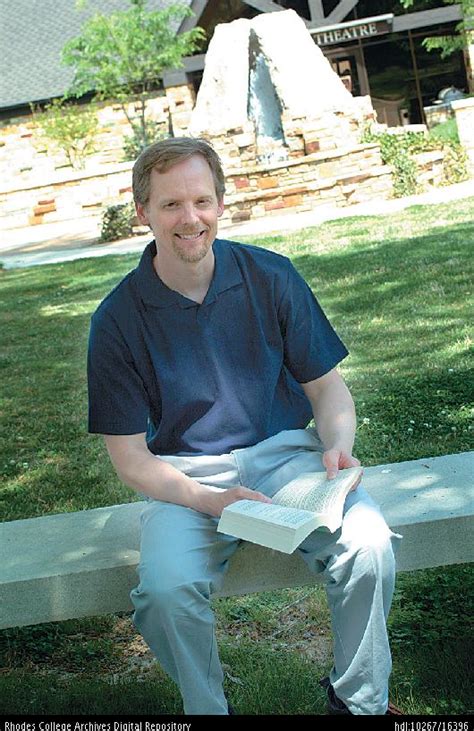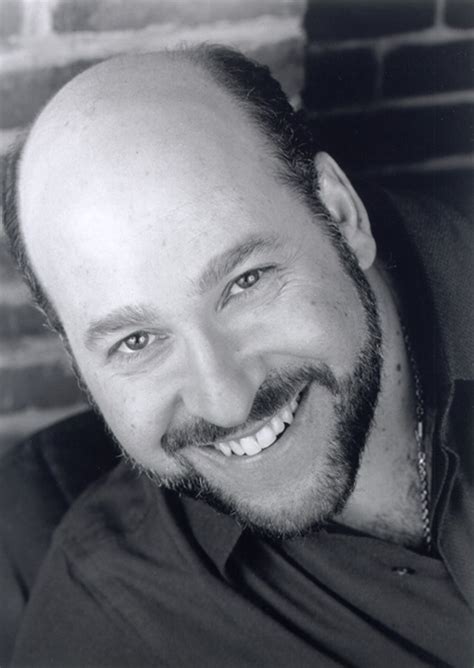Top 885 Intimacy Quotes & Sayings - Page 15
Explore popular Intimacy quotes.
Last updated on November 13, 2024.
Absence does not so much make the heart grow fonder as give the heart time to integrate what it has not previously absorbed, time to make sense of what happened too quickly to have any meaning in the instant. This is always true. If it is in absence that people forget each other, it is also in the quiet pause of absence that, minds running in symmetry, people come to know each other; there is sometimes as much intimacy in the span of continents as in the shared hours before dawn.
I write, and I feel how the correct and precise use of words is sometimes like a remedy to an illness. Like a contraption for purifying the air, I breathe in and exhale the murkiness and manipulations of linguistic scoundrels and language rapists of all shades and colors. I write and I feel how the tenderness and intimacy I maintain with language, with its different layers, its eroticism and humor and soul, give me back the person I used to be, me, before my self became nationalized and confiscated by the conflict, by governments and armies, by despair and tragedy.
Besides the obvious difference, there was not much distinction between losing a best friend and losing a lover: it was all about intimacy. One moment, you had someone to share your biggest triumphs and fatal flaws with; the next minute, you had to keep them bottled inside. One moment, you'd start to call her to tell her a snippet of news or to vent about your awful day before realizing you did not have that right anymore; the next, you could not remember the digits of her phone number.
We are social animals. We like to feel a part of something of beauty and power that transcends our insignificance. It can be a religion, a political party, a ball club. Why not also Nature? I feel a strong identity with the world of living things. I was born into it; we all were. But we may not feel the ties unless we gain intimacy by seeing, feeling, smelling, touching and studying the natural world. Trying to live in harmony with the dictates of nature is probably as inspirational as living in harmony with the Koran or the Bible. Perhaps it is also a timely undertaking.
In wrestling there are so many people inside and outside the ring, and it's so live, and it's this whole adrenaline thing. Whereas you move it into this more intimate thing, everything gets all quiet, someone says action, and you have to say the lines and make the words your own. It couldn't be any more different and it's weird sometimes trying to explain that to people. When I tell people that acting is much more terrifying to me than going out in front of ten thousand people, they don't quite believe it because for some reason that intimacy is just terrifying to me.
This is a glorious biography ... The time is ripe for a new biography of Edith Wharton of this intimacy and on this scale ... Lee the biographer pursues her subject down every winding corridor, into every hidden passage and dark corner ... Her critical exploration of Edith Whartons work is dazzlingly assured ... A feat of exhaustive research, and finely tuned to Whartons creative achievement at the same time ... [Wharton] could scarcely have failed to be impressed by ... its artistic sympathy, its sonorous depths, and its soaring conception.
We should expect hope's reciprocity as a natural flowering of the life of hope. Helping others and nurturing hope is expressive of hopefulness itself. It is an extension of the hopeful self to reach out to others, promoting the connection of agency and the enrichment of horizons of meaning. Hope's reciprocity grows out of the very social nature of hope; we thus frequently see it live in family relations, in intimacy, in love. And so hope spreads. This spreading should not surprise us; like love, it is freely given, fostered, and nurtured.
I have been a lucky man. To feel the intimacy of brothers is a marvelous thing in life. To feel the love of people whom we love is a fire that feeds our life. But to feel the affection that comes from those whom we do not know, from those unknown to us, who are watching over our sleep and solitude, over our dangers and our weaknesses – that is something still greater and more beautiful because it widens out the boundaries of our being, and unites all living things.
We have forced everyone to go into marriage because of love. Because you cannot love outside it, so we have unnecessarily forced love and marriage to be together - unnecessarily. Marriage is for deeper things - even more deep: for intimacy, for a "co-inherence," to work on something which cannot be done alone, which can be done together, which needs a togetherness, a deep togetherness. Because of this love-starved society, we fall into marriage out of romantic love.
Our moment had passed somehow. I was different. He was, too. Without our “madness” to unite us, there wasn’t anything much there. Or maybe too much had happened in too short a time. It’s like when you take a trip with someone you don’t know very well. Sometimes you can get very close very quickly, but then after the trip is over, you realise all that was a false sort of closeness. An intimacy based on the trip more than the travellers, if that makes any sense.
Individuals of the earlier species had suffered from an almost insurmountable spiritual isolation from one another. Not even lovers, and scarcely even the geniuses with special insight into personality, ever had anything like accurate vision of one another... The most precious gift that a lover could bring to the beloved was not virginity but sexual experience. The union, it was felt, was the more pregnant the more each party could contribute from previous sexual and spiritual intimacy with others.
The gifts of the Master are these: freedom, life, hope, new direction, transformation, and intimacy with God. If the cross was the end of the story, we would have no hope. But the cross isn't the end. Jesus didn't escape from death; he conquered it and opened the way to heaven for all who will dare to believe. The truth of this moment, if we let it sweep over us, is stunning. It means Jesus really is who he claimed to be, we are really as lost as he said we are, and he really is the only way for us to intimately and spiritually connect with God again.
When the Irish nun said to me, "Speak your name loud and clear so that all the boys and girls can hear you," she was asking me to use language publicly, with strangers. That's the appropriate instruction for a teacher to give. If she were to say to me, "We are going to speak now in Spanish, just like you do at home. You can whisper anything you want to me, and I am going to call you by a nickname, just like your mother does," that would be inappropriate. Intimacy is not what classrooms are about.
So remember, if marriage arises out of intimacy then it is beautiful. That means that everybody should have lived together before they get married. The honeymoon should not happen after marriage, it should happen before marriage. One should have lived the dark nights, the beautiful days, the sad moments, the happy moments, together. One should have looked into each other's eyes deeply, into each other's being.
And we stood like that. The joining of hands is highly underrated in the acts of intimacy. You kiss acquaintances or colleagues, casually to say hello or good-bye. You might even kiss a close friend chastely on the lips. You might quickly hug anyone you knew. You might even meet someone at a party, take him home and sleep with him, never to see him or hear from him again. But to join hands and stand holding each other that way, with the electricity of possibilities flowing between you? The tenderness of it, the promise of it, is only something you share with a few people in your life.
Was Mrs. Wilcox one of the unsatisfactory people- there are many of them- who dangle intimacy and then withdraw it? They evoke our interests and affections, and keep the life of the spirit dawdling around them. Then they withdraw. When physical passion is involved, there is a definite name for such behaviour- flirting- and if carried far enough, it is punishable by law. But no law- not public opinion, even- punishes those who coquette with friendship, though the dull ache that they inflict, the sense of misdirected effort and exhaustion, may be as intolerable. Was she one of these?
If you want to love, take the time to listen to your heart. In most ancient and wise cultures it is a regular practice for people to talk to their heart. There are rituals, stories, and meditative skills in every spiritual tradition that awaken the voice of the heart. To live wisely, this practice is essential, because our heart is the source of our connection to and intimacy with all of life. And life is love. This mysterious quality of love is all around us, as real as gravity... Yet how often we forget about love.
No scientist knows the world merely by holding it at arm's length: if we ever managed to build the objectivist wall between the knower and the known, we could know nothing except the wall itself. Science requires an engagement with the world, a live encounter between the knower and the known. That encounter has moments of distance, but it would not be an encounter without moments of intimacy as well. Knowing of any sort is relational, animated by a desire to come into deeper community with what we know.
For me, one of the reasons I love this form - the personal essay form - is because it's a way of forming an intimacy with the reader. What I'm saying to the reader is: I'm going to tell you something; I'm going to be generous; I'm going to offer. The confession, on the other hand, is sort of an imposition because you're asking the reader to forgive you or somehow exonerate you or say, "Hey, I'm even worse." But what I'm interested in doing is being generous and offering a perspective or suggesting a way of thinking about something.
The difference when I'm writing a story versus writing a joke is that writing a joke is so much more about the structure and it's less about the conversation. To me, the thing that I love about stand-up is the intimacy between performer and audience.To get it even more conversational was something that really appealed to me and that I really enjoyed doing. My early experiments with it, with just telling a story from my life on stage, it was so satisfying to do. And seemingly for the audience as well. It's a different thing, and it's a different feeling and a different vibe.
Love, and love as deeply as possible. And if love itself becomes the marriage, that is another thing, altogether different. If love itself becomes such an intimacy that it is unbreakable, that is another thing, that is not a legal sanction. Legal sanctions are needed only because you are afraid. You know that your love is not enough; you need the legal support for it. You know perfectly well that you can escape or the woman can escape, hence you need the policeman to keep you together. But this is ugly, to need a policeman to keep you together. That's what marriage is!
The traditional gender ideals of the strong-silent man who plays his cards close to his chest and the mysterious woman who disguises her feelings with coyness go so far as to make a virtue of being unavailable and secretive. But wholehearted intimacy can develop only where two people are equally forthcoming and self-revelatory. To take the risk of loving, we must become vulnerable enough to test the radical proposition that knowledge of another and self-revelation will ultimately increase rather than decrease love. It is an awe-ful risk.
The meaning of secrecy is very different when the model of love is one of transparency. So to understand the politics of secrecy and revelation, you need to understand the larger culture in which the couple lives and also the culture of the couple itself. What does intimacy mean to them? Where does the couple draw the line between togetherness and separateness? That's what informs you. You always ask, "What would happen if I tell? What would happen if I don't tell?" Sometimes, the partner doesn't want to know.
When we accept Christ we enter into three new relationships: (1) We enter into a new relationship with God. The judge becomes the father; the distant becomes the near; strangeness becomes intimacy and fear becomes love. (2) We enter into a new relationship with our fellow men. Hatred becomes love; selfishness becomes service; and bitterness becomes forgiveness. (3) We enter into a new relationship with ourselves. Weakness becomes strength; frustration becomes achievement; and tension becomes peace.
Working with a manuscript with that kind of intimacy is kind of like taking a magnification mirror to your pores. Its horrifying but it shows just where the problems are. Of course, I do get bored of the words after a while. I take breaks from them so that we can breathe. And by the time I'm done with my umpteenth regurgitation, I hate the words. They become flavorless chewing gum. Like how really old gum gets once it starts disintegrating in your mouth. Gum that's lost its elasticity and feels like a sweater.
I fell in love with the classical crossover genre when I was on AGT. I found out that I could use the microphone to establish a deeper intimacy with the audience. I did not portray an opera character; I was my true self. I would sing a four-to-five minute piece for the audience and then I could talk to them and say "Hi" to them! I would not need to act out scenes where my character was dying from tuberculosis or killing somebody else on stage, I could have a nice conversation with them.
The true, the genuine worship is when man, through his spirit, attains to friendship and intimacy with God. True and genuine worship is not to come to a certain place; it is not to go through a certain ritual or liturgy; it is not even to bring certain gifts. True worship is when the spirit, the immortal and invisible part of man, speaks to and meets with God, who is immortal and invisible.
the growth of intimacy is like that. First one gives off his best picture, the bright and finished product mended with bluff and falsehood and humour. Then more details are required and one paints a second portrait, and a third – before long the best lines cancel out – and the secret is exposed at last; the planes of the pictures have intermingled and given us away, and though we paint and paint we can no longer sell a picture. We must be satisfied with hoping that such fatuous accounts of ourselves as we make to our wives and children and business associates are accepted as true
All of a sudden I understand why I like Aliki Barnstones poems so much. They remind me of the one she has studied most - shall we call her her master - Emily Dickinson. Not in the forms, not, as such, in the music, and not in the references; but in that weird intimacy, that eerie closeness, that absolute confession of soul.... In Barnstone, too, the two worlds are intensely present, and the voice moves back and forth between them. She has the rare art of distance and closeness. It gives her her fine music, her wisdom, her form. She is a fine poet.
She rested her head against his and felt, for the first time, what she would often feel with him: a self-affection. He made her like herself. With him, she was at ease; her skin felt as though it was her right size.. It seemed so natural, to talk to him about odd things. She had never done that before. The trust, so sudden and yet so complete, and the intimacy, frightened her.. But now she could think only of all the things she yet wanted to tell him, wanted to do with him.
Many abused children cling to the hope that growing up will bring escape and freedom. But the personality formed in an environment of coercive control is not well adapted to adult life. The survivor is left with fundamental problems in basic trust, autonomy, and initiative. She approaches the tasks of early adulthood-establishing independence and intimacy-burdened by major impairments in self-care, in cognition and memory, in identity, and in the capacity to form stable relationships. She is still a prisoner of her childhood; attempting to create a new life, she reencounters the trauma.
As you all become more intimate with Me, with opportunities to come closer to Me, all that is good and bad within you comes out in sparks, as it were . . . all the impressions of the past, the accumulations of past sanskaras - of all illusory things, which includes both good and bad - come out. My proximity, the intimacy with Me, just changes that mass of sanskaras, and sometimes you find sparks of good and bad flying out.
Canada is the linchpin of the English-speaking world. Canada, with those relations of friendly, affectionate intimacy with the United States on the one hand and with her unswerving fidelity to the British Commonwealth and the Motherland on the other, is the link which joins together these great branches of the human family, a link which, spanning the oceans, brings the continents into their true relation and will prevent in future generations any growth of division between the proud and the happy nations of Europe and the great countries which have come into existence in the New World.
God is not concerned about our plans; He doesn’t ask, “Do you want to go through this loss of a loved one, this difficulty, or this defeat?” No, He allows these things for His own purpose. The things we are going through are either making us sweeter, better, and nobler men and women, or they are making us more critical and fault-finding, and more insistent on our own way. The things that happen either make us evil, or they make us more saintly, depending entirely on our relationship with God and its level of intimacy.
But obviously, things have changed in many ways since the '50s, when the show is started, in terms of sexuality, and how much access we have to images of it and information about it. But, the same problems always apply. It doesn't matter whether we know a lot more about sex now or if there's a lot more access to it. The same problems of intimacy, of dealing with other people, of connecting and being vulnerable with other people, which is what the show is ultimately about, still applies now, I think.
Parenting can be established as a time-share job, but mothers are less good "switching off" their parent identity and turning to something else. Many women envy the father's ability to set clear boundaries between home and work, between being an on-duty and an off-duty parent.... Women work very hard to maintain a closeness to their child. Father's value intimacy with a child, but often do not know how to work to maintain it.
This practice of adoration is based on strong and solid reasons. For the Eucharist is at once a sacrifice and a sacrament; but it differs from the other sacraments in that it not only produces grace, but contains in a permanent manner the Author of Grace Himself. When, therefore, the Church bids us to adore Christ hidden behind the Eucharistic veils and to pray to Him for spiritual and temporal favors, of which we ever stand in need, she manifests faith in her divine Spouse who is present beneath these veils, she professes her gratitude to Him, and she enjoys the intimacy of His friendship
Her definition of romance was absentminded intimacy, the way someone else's hand stray to your plate of food. I replied: no, that's just friendship; romance is always knowing exactly where that someone else's hands are. She smiled and said, there was a time I thought that way, too. But at the heart of the romance is the knowledge that those hands may wander off elsewhere, but somehow through luck or destiny or plain blind groping they'll find a way back to you, and maybe you'll be smart enough then to be grateful for everything that's still possible, in spit of your own weaknesses- and his.
In The Shining, you love Shelley Duvall. You love Jack Nicholson. You're let into the intimacy of that violence and it's emotional and it's physical. We're let in very close. So I think a good horror film has to pull you in very deeply inside. Halloween is a good horror film because we love Jamie Lee Curtis, we're brought very deeply in right when she's babysitting the kids. She's going from house to house, all those houses have windows that you can look in. We're a very vulnerable and exposed audience.
Men are terrified of a woman's depth of love and the energy that moves as a woman's sexuality and emotions. And, at the same time, men want nothing more in this life than to merge completely with a woman's devotional love and wild energy. Only as a man outgrows his fear can he handle a woman's tremendous love-energy without running. And only such a man is worthy of your devotional offering in a committed intimacy.
I see things in hardcopy that I miss if I only see words on screen. I do get sick of the words, but I like to see everything spread out because I get a sense of scale that is missing from screen. Going over each sentence many, many, many times gives me incredible intimacy with sentences, especially their rhythm. The rhythm and music of words matter a lot to me and it only takes one misplaced word to spoil the music.
Love can never really be a great base for marriage because love is fun and play. If you marry someone for love you will be frustrated, because soon the fun is gone, the newness is gone, and boredom sets in. Marriage is for deep friendship, deep intimacy. Love is implied in it, but it is not alone. So marriage is spiritual. It is spiritual. There are many things which you can never develop alone. Even your own growth needs someone to respond, someone so intimate that you can open yourself totally to him or her.
Most people are hurt deeply by betrayals in relationships. It might be better to really get up against and sort of contact that caring, and maybe take a more loving stance even with your own pain, and keep your feet moving towards what you really want, because the cost in terms of intimacy and connection and caring that comes when you try not to be vulnerable, when you're constantly looking out for betrayals of trust, is too great. It makes it very hard to have relationships of the kind that you really want. One, look where the pain is. Flip it over; you'll find that's where the values are.
When the theater is gothic it matches the sensibility of the show. It's also very intimate. The audience is very close to the performers. The show is scary and the scary stuff always works best with an intimacy with the audience. And the show is erotic, and I think erotic always works best when it's close to the audience, as well.
We're a lukewarm people for all our feast days and hard work. Not much touches us, but we long to be touched. We lie awake at night willing the darkness to part and show us a vision. Our children frighten us in their intimacy, but we make sure they grow up like us. Lukewarm like us. On a night like this, hands and faces hot, we can believe that tomorrow will show us angels in jars and that the well-known woods will suddenly reveal another path.







































